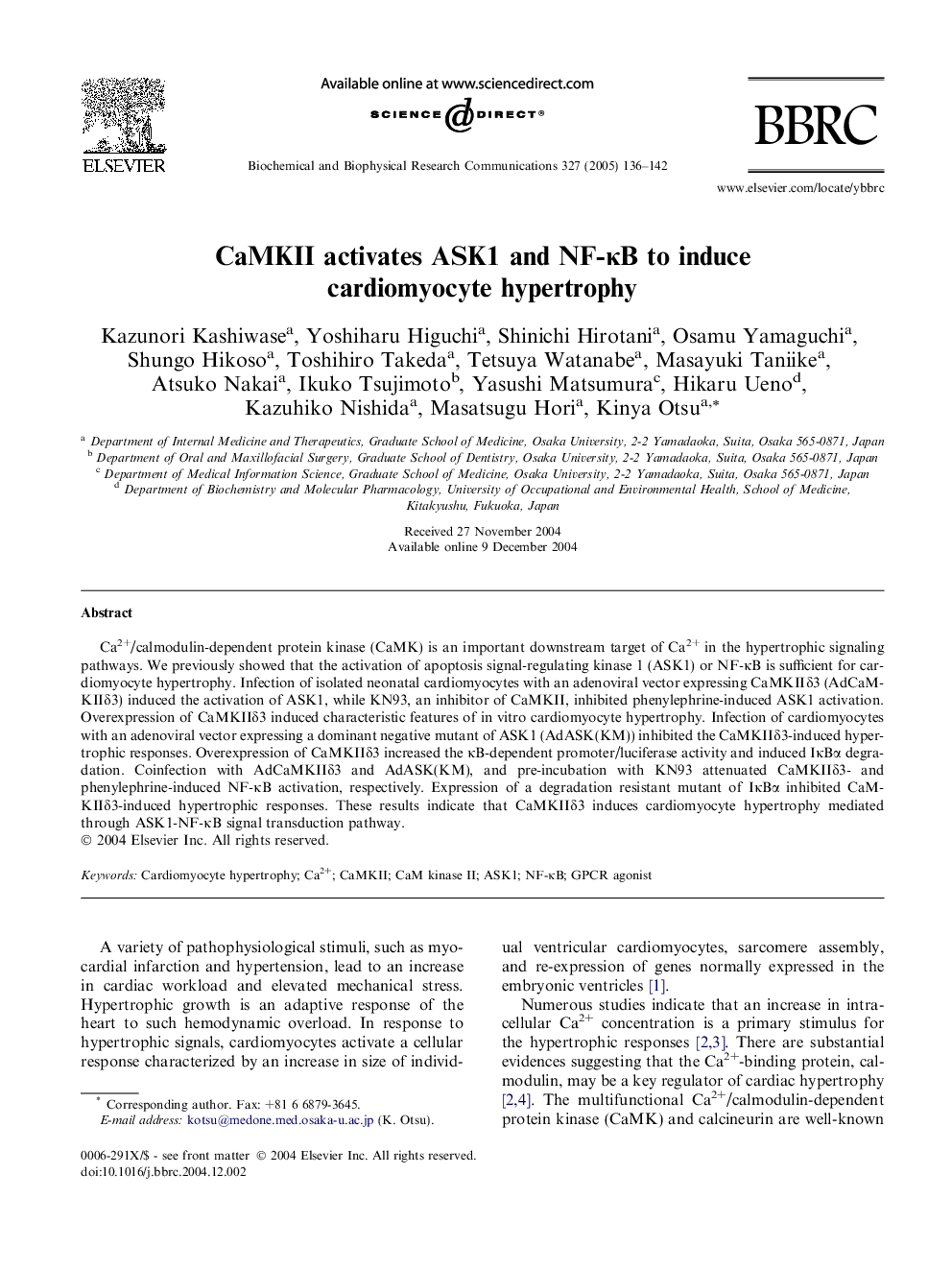| Article ID | Journal | Published Year | Pages | File Type |
|---|---|---|---|---|
| 10771613 | Biochemical and Biophysical Research Communications | 2005 | 7 Pages |
Abstract
Ca2+/calmodulin-dependent protein kinase (CaMK) is an important downstream target of Ca2+ in the hypertrophic signaling pathways. We previously showed that the activation of apoptosis signal-regulating kinase 1 (ASK1) or NF-κB is sufficient for cardiomyocyte hypertrophy. Infection of isolated neonatal cardiomyocytes with an adenoviral vector expressing CaMKIIδ3 (AdCaMKIIδ3) induced the activation of ASK1, while KN93, an inhibitor of CaMKII, inhibited phenylephrine-induced ASK1 activation. Overexpression of CaMKIIδ3 induced characteristic features of in vitro cardiomyocyte hypertrophy. Infection of cardiomyocytes with an adenoviral vector expressing a dominant negative mutant of ASK1 (AdASK(KM)) inhibited the CaMKIIδ3-induced hypertrophic responses. Overexpression of CaMKIIδ3 increased the κB-dependent promoter/luciferase activity and induced IκBα degradation. Coinfection with AdCaMKIIδ3 and AdASK(KM), and pre-incubation with KN93 attenuated CaMKIIδ3- and phenylephrine-induced NF-κB activation, respectively. Expression of a degradation resistant mutant of IκBα inhibited CaMKIIδ3-induced hypertrophic responses. These results indicate that CaMKIIδ3 induces cardiomyocyte hypertrophy mediated through ASK1-NF-κB signal transduction pathway.
Related Topics
Life Sciences
Biochemistry, Genetics and Molecular Biology
Biochemistry
Authors
Kazunori Kashiwase, Yoshiharu Higuchi, Shinichi Hirotani, Osamu Yamaguchi, Shungo Hikoso, Toshihiro Takeda, Tetsuya Watanabe, Masayuki Taniike, Atsuko Nakai, Ikuko Tsujimoto, Yasushi Matsumura, Hikaru Ueno, Kazuhiko Nishida, Masatsugu Hori, Kinya Otsu,
